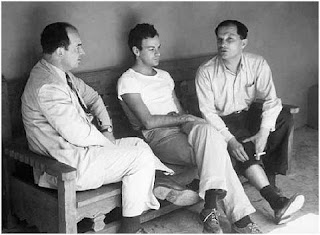Clayton Christensen es un tipo bastante conocido en Estados Unidos. Escribió el libro
The Innovator's Dilemma, uno de los pocos libros que Steve Jobs incluye en su
lista de libros seleccionados.
Hace casi 2 años escribió
How Will You Measure Your Life, un artículo para Harvard Business Review. El artículo está en inglés, pero está muy bien escrito. Si se bancan el idioma, lean el original en vez de esto.
Lo leí hace 1 año aprox y me pareció increíble. Lo que más me impactó fue encontrarme con la mirada trascendente en un tipo así de reconocido, profesor de Harvard, autor de libros grossos, etc.
Hoy me lo volví a encontrar, y por eso le hago este espacio.
En el artículo él cuenta cómo su misión como profesor del MBA es darle a sus alumnos elementos para que sepan distinguir cuáles son buenas teorías o estrategias de gestión y cómo ejecutarlas.
En la última clase aparece la
magia: les pide que apliquen lo aprendido en su clase a sus propias vidas... que se hagan estas preguntas:
 ¿Cómo puedo asegurarme de que voy a ser feliz con mi carrera profesional?
¿Cómo puedo asegurarme de que voy a ser feliz con mi carrera profesional?
¿Cómo puedo estar seguro de que mi relación con mi familia van a ser una fuente constante de felicidad?
¿Cómo puedo asegurarme de que no voy a terminar en la cárcel?
